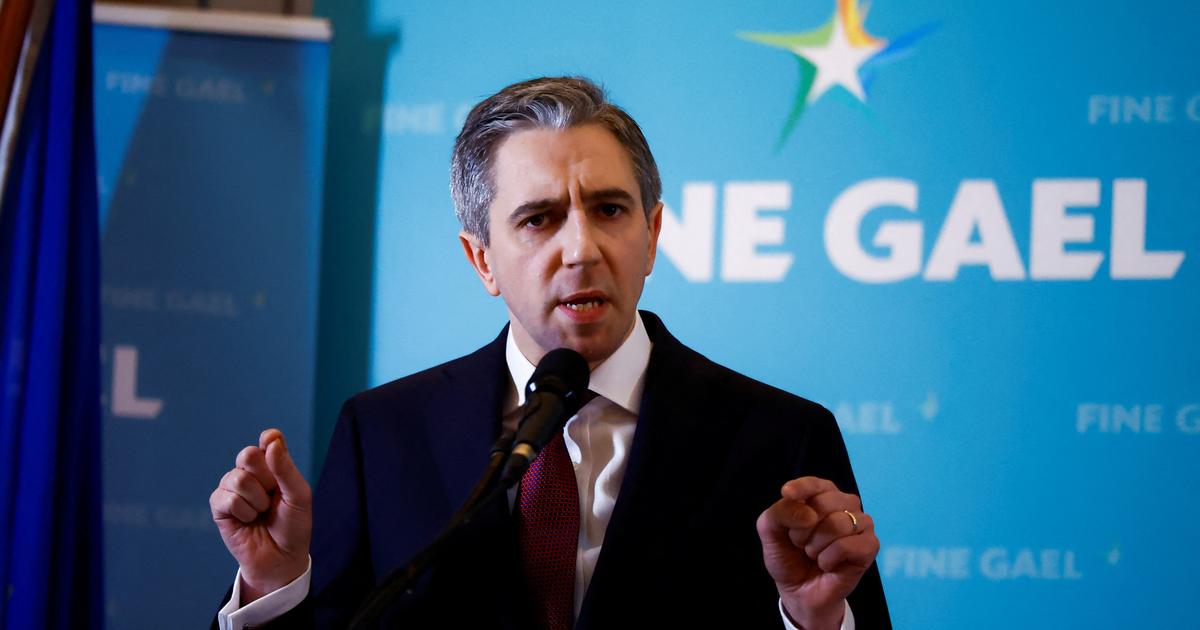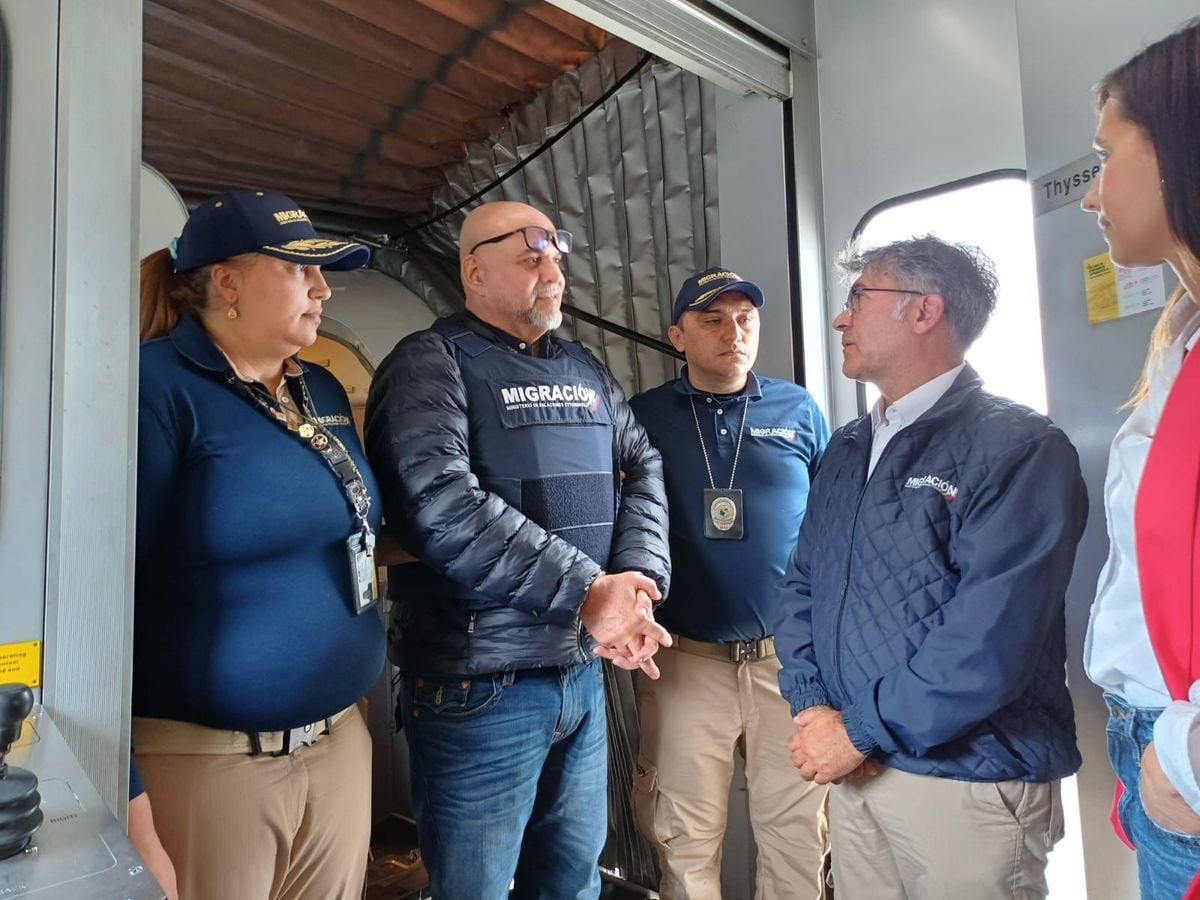At the moment it sounds more like bravado or pressure maneuvering than a real threat, but the letter sent this Wednesday to Boris Johnson by a group of unionist paramilitaries from Northern Ireland, advanced by The Irish News, is another kick to the hornet's nest than Brexit woke up.
David Campbell (Belfast, 55 years old) was until 2012 chairman of the Ulster Unionist Party, and one of the negotiators of that formation in the talks that led to the 1998 Good Friday Agreement, also known as the Belfast Agreement.
Today he chairs the Council of Loyalist Communities [the term for pro-British Northern Irish].
It has just announced that this association, under whose umbrella several of the unionist Ulster formations congregate, “withdraws its support for the Belfast Agreement and its institutions until the rights contemplated in that agreement are restored and the Irish Protocol is corrected [the document annexed to the UK Withdrawal Agreement from the EU], to ensure an unlimited movement of goods, services and citizens throughout the UK ”.
The resurrected tension in Northern Ireland has every aspect of an orchestrated maneuver with three stages.
Unionist parties that already enjoy institutional respectability officially call for a complete amendment to the Irish Protocol;
the Johnson government announces gradual changes unilaterally disguised as practical solutions, without consulting the EU, and shadow paramilitary groups encourage graffiti of protest and propose a campaign of disobedience.
Although they are quick to emphasize, next, that it will be a "peaceful and democratic" maneuver, the letter says.
Brussels has already made it clear that what is signed is not negotiable, although it is open to seeking flexible solutions within the Joint Committee that supervises the United Kingdom's Withdrawal Agreement from the EU.
Johnson agreed to sign the Irish Protocol as the only way to move forward with his long-awaited Brexit.
It establishes that Northern Ireland will remain part, for a long term, of the Internal Market and the customs area of the EU.
It was the way to avoid a new border between the two Ireland that would revive ghosts of division and endanger the peace reached in 1998. Since then, the border between Protestants and Catholics is invisible and, in practical day-to-day life, Ireland is only a.
The new mechanism entails customs and sanitary controls between goods and services that cross the Irish Sea.
As if Northern Ireland were part of the EU.
And the Unionists, with a logically deep sense of British belonging, felt betrayed from the get-go.
To the point, the letter points out, of finding comparative grievances with other territories such as Gibraltar.
“The consent of the population of Northern Ireland has not been requested to implement the Protocol (...) in drastic contrast to the Gibraltar Protocol, in which the Gibraltarian Government was part of the negotiations between the United Kingdom and the EU, where the consensus of their representatives was sought and obtained, and in which their representatives are part of the agreement's supervision committees together with Spain and the EU, ”says the letter from the Council of Loyalist Communities.
Northern Ireland suspends post-Brexit border controls as threats of violence appear
The Johnson administration has yet to make a move, but it can use this unionist malaise to reinforce its latest move.
The Minister for Northern Ireland, Brandon Lewis, announced this Wednesday in the House of Commons that Downing Street was going to extend until October the "grace period" agreed with Brussels (scheduled until April), by which customs and health controls They would not be deployed until the affected companies adjusted their operations to the new standard.
Lewis made particular reference to supermarket chains and specific companies that depend on direct agri-food supplies from Great Britain.
"We have listened to the concerns of Northern Ireland businesses and citizens and want to show sensitivity to the economic, social and political realities of the region," Lewis said.
The response from the European Commission (EC), and also from the Government of Dublin (very directly affected by the matter) was immediate.
Maros Sefcovic, the vice president of the EC expressed his protest by phone to David Frost, Johnson's man (with ministerial rank) who negotiated the trade agreement with Brussels and today handles all matters related to Brexit.
“The unilateral decision taken by the British Government constitutes a violation of important clauses of the Irish Protocol and of the obligation of good faith of the Withdrawal Agreement.
It is the second time that the United Kingdom has violated international law, ”Sefcovic said in a harsh statement.
He was referring to the maneuver carried out in November by Johnson to alter, through an internal bill, part of the agreement on Northern Ireland.
Downing Street was forced to back down after Brussels launched a legal response.
The same that threatens to undertake now, before the new play of London.
The Prime Minister of the Republic of Ireland, Michaél Martin, and his Foreign Minister, Simon Coveney, also conveyed to Frost their discomfort and disappointment at an "extremely unhelpful" maneuver.




/cloudfront-eu-central-1.images.arcpublishing.com/prisa/2AYD5L6JMJAJ7F7KWQUHPVVVR4.jpg)

/cloudfront-eu-central-1.images.arcpublishing.com/prisa/62WTZ2YGTKOGTJ6OXJW67JCCME.jpg)








